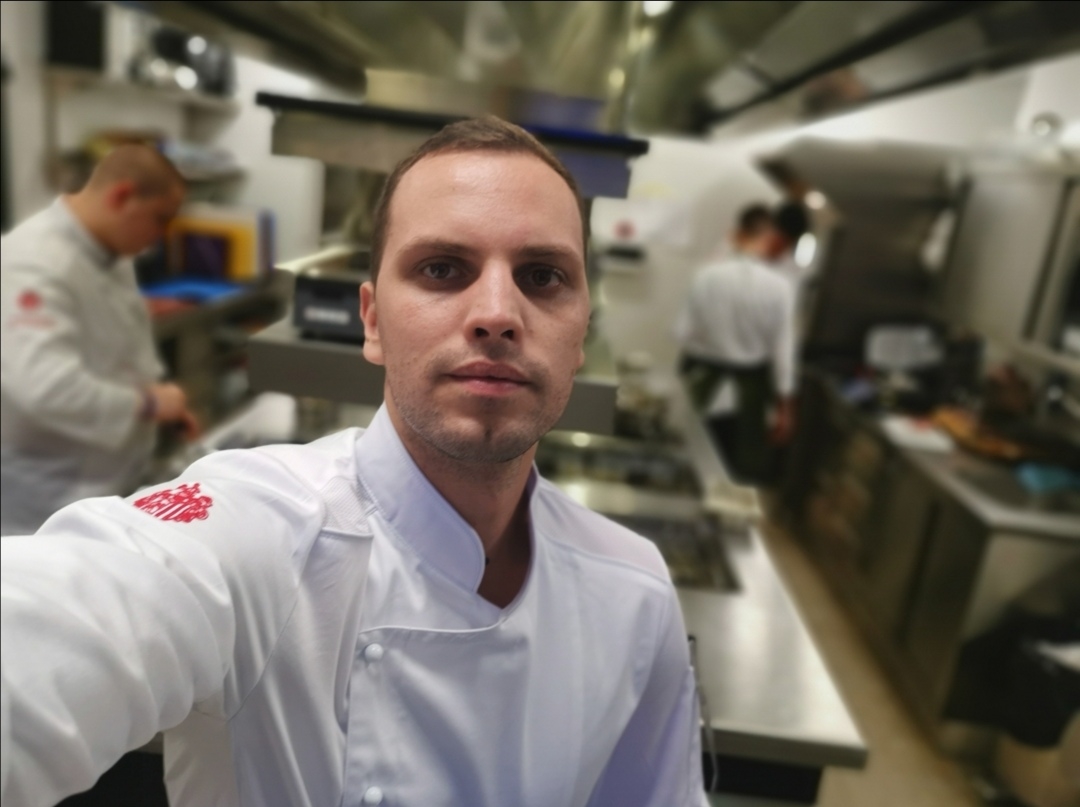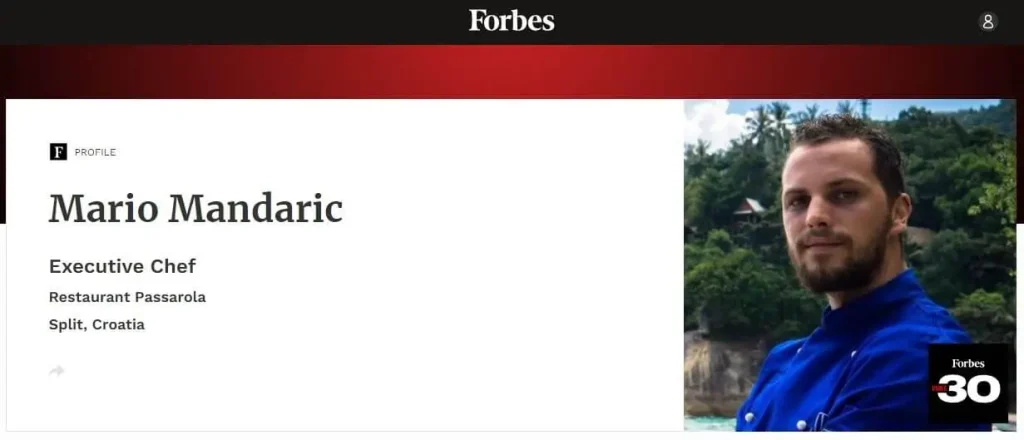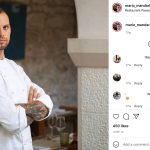The young Split chef was among the 30 most influential people in the world under 30, and ended up on the list because of his interesting Food Waste Awareness project, which he worked on in London last year, reports Index.hr.
The Food Waste Awareness project has proven extremely successful. Mario made a seven-course dinner of food that was supposed to end up in the trash and wanted to raise awareness about just how much is thrown away in the world’s big restaurants.
“I worked in England, and I wanted to make a pop-up dinner for clients I met in Thailand. However, I wanted to stand out with something, and the whole time I had in my head how much food is thrown away in restaurants. Food that was not processed at all and that was supposed to end up in the trash.
So I came up with the idea of making a pop-up dinner out of food that the chefs knew would fail. One gave me 10 pounds of zucchini because he accidentally had excess, the other had some thawed ducks to prepare for a group that canceled, and so on. So I gathered many groceries, went to the kitchen, and started stacking dishes from what I had. I created a seven-course menu,” said Mandarić.
He invited people from the industry to dinner – chefs, restaurant owners, and people who are connected to gastronomy. Between courses, he gave lectures on how to reduce restaurant waste, reduce waste at home, recycle food, and even taught guests how to compost.
“It wasn’t until the end of dinner that I told the guests that all seven courses they had just eaten were made from food that restaurants would throw away. I threw them some facts like that 47 thousand tons of unprocessed food in European restaurants are thrown away every year,” Mandarić added for Index. He did not charge for dinner but collected donations. The smallest donation was £55, and everything he raised he donated to Centerpoint, a center for young homeless people in London.
“That project continued, but the lockdown prevented the organization dinners,” he said.

Mario describes himself as boring – he doesn’t drink, doesn’t smoke, and goes to bed at 11 pm.
Mario Mandarić grew up in Omiš, where he enrolled in cooking school after primary school. He revealed he was attracted to that school because of the friends who enrolled in it and the stories about large chef salaries in big restaurants.
“A cooking professor knocked me down for years and told me I would never be a chef. Then I dropped out of school,” said Mandarić, who really threw himself into cooking when he dropped out.
“I started working for free at restaurants around to learn the basics, and then I applied for a job on a cruiser going from Split to Dubrovnik. It was a good salary, and the boat took one week from Split to Dubrovnik. I thought, if I’m not satisfied, they wouldn’t throw me into the sea. Still, I was satisfied and endured the whole season there. That was when I was 17,” he said.
“By the way, I loved to cook,” said Mandarić.
“I never wanted to be an assistant chef. That was a big mistake. I had to finish that school and go through some basics. I knew how to come to a restaurant and make foams and emulsions, and I didn’t know how to make bechamel and soup. Still, I always pushed myself to learn as much as I could,” he added.
After spending several seasons on the Adriatic, he traveled to Thailand as a tourist with 600 euros in his pocket. The trip ended with him opening a restaurant in a bay where there was no kitchen, electricity, or water.
“I went as a tourist for 20 days and met a guy who cooked for National Geographic and those who pretend to survive. He told me about a cove in Thailand where there is no water and electricity, where a group of 200-300 foreigners live like hippies or run away from some reality. That guy and I once went to a party in that bay, he lost his wallet, and he had to buy a ticket to Alaska. So we came to the idea to make dinner for those people in the bay, counting that about thirty people would come and pay and thus provide him with enough money for the ticket,” said Mandarić about the beginning of the project in Thailand.
“We had one gas stove in that accommodation. We made eight courses for 20 people, and more than 100 came. Then we figured we could make money. I went back to Brač to work the season and then went to Thailand again. First, we cooked in a bungalow, and then we rented a beach facility made of bamboo, and it became trendy, especially among the stars, because no one could see them,” he said.
He remained in Thailand for several years, worked on a tourist visa, and occasionally returned to Croatia. He raised money, said goodbye to Thailand, and decided to open a restaurant in Split.
“Split was ideal. And, honestly, I wanted to achieve something at home,” said Mandarić, who upon returning to Split became the owner of the Šumica restaurant in Bačvice.
Mandarić found himself in the media not because of his chef skills, but because of the fire at Šumica after he became the owner. He said the fire occurred six months after becoming a co-owner or three months after he became the owner.
“We worked superbly; you can check that. I was not insured against such things, but the restaurant was insured against everything else. If I wanted to withdraw money from insurance, I could have done it easily; this is how my money burned,” said Mandarić.
He then went to England, accepting one of the offers he had at the time. He cooked at a restaurant in the north of England and then got an offer from Dinner By Heston.
After England, he returned to Roxanich in Motovun and then moved to Noel Buje, which closed half a year later.
Mandarić is now deciding between an offer in Scotland and the chef position at a restaurant on Brač.
“There is one concept that I am planning for Split, but it will not happen for at least another two years. Because of the concept, the restaurant must be in Split,” concluded Mandarić.
Read about Mario on Forbes.
To read more about lifestyle in Croatia, follow TCN’s dedicated page.









